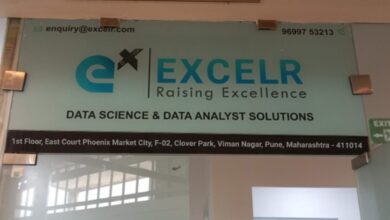The Importance of Sustainability in the Supply Chain

For businesses to thrive in future, it is critical to understand supply chain sustainability. This means following steps that are both earth-friendly as well as economically viable throughout the production process of goods and services. By adopting such practices early, you set yourself up for long-term success, with a strong resonance among consumers and the entire international community at large.
Understanding Supply Chain Sustainability
Think about it as a commitment to ethical manufacturing and distribution if you want an overview on supply chain sustainability. It means incorporating environmentally friendly and socially responsible practices into your business model so that every stage from raw materials to end user is eco-friendly and just. Thus doing not only helps in environmental protection but also benefits all concerned parties.
The Growing Importance of Eco-Friendly Practices
In supply chains, the surge of green practices cannot be ignored. Consumers insist on transparency and good corporate citizenship alongside tightening regulations by environmental watchdogs. This makes it essential to go green since this will enable companies to keep their competitive advantage as well as make them more resilient against uncertainties.
Economic Benefits of Sustainable Supply Chains
Investing in Sustainable supply chain can generate huge savings on costs thereby boosting profit margins. For example, making operations “greener” through activities that lower energy consumption or waste levels significantly brings down expenditure. Additionally, embracing sustainability opens new market doors thereby ensuring that customers have a better orientation towards firms which preserve ecological balance.
Cost-Saving Measures through Sustainability
You will not only be saving the planet by integrating this principle into your supply chain but also improving upon your financial health status. Power efficiency measures minimize utility expenses while solid waste management techniques decrease disposal costs. Furthermore, packaging options which are sustainable cut back on both materials expenses and shipping weights resulting in more savings being made. Invest now in eco-friendly ways of doing business and see how low operation costs become.
Long-Term Financial Gains of Eco-Friendly Operations
Sustainable operations pay off way much more than just reducing costs. A stronger brand loyalty is created which naturally attracts new market segments of people who are committed to the environment. Furthermore, regulatory compliance is easier hence avoiding penalties and disruptions. In anticipation for future challenges, your company’s sustainability lens will ensure it remains a profit center in an increasingly environmentally conscious economy.
Environmental Impact of Supply Chain Operations
The health of our planet depends greatly on what you do with your supply chain. Reducing the amount of carbon released into the atmosphere means lower greenhouse gas emissions that contribute to climate change. This contributes towards conserving natural resources, safeguarding ecosystems and minimizing pollution by choosing sustainable sourcing and robust waste management systems. Your green choices make way for a more sustainable and accountable future.
Reducing Carbon Footprints in the Supply Chain
In reducing its carbon footprint, your supply chain must prioritize transportation efficiency as well as logistics optimization. Instead of using oil or coal, go for energy from renewable sources while adopting power efficiency devices at Entire production flow of goods or services. Find out what parts that will have high impacts on the environment due to their use throughout its lifecycle so that you can minimize those externalities in the product design phase ahead. In this regard, being proactive implies being at the forefront of greening supply chains.
Sustainable Sourcing and Waste Management Strategies
To adopt a sustainable sourcing approach select materials with minimal environmental impact giving priority to renewable or recycled inputs .By putting up recycling schemes as well as exploring possibilities for upcycling, strong waste management and Inventory management services could lead to significant reduction in your supply chain waste generated throughout this process. Therefore choosing such green strategies means playing a very important role in saving our planet for future generations.
Social Responsibility and Ethical Considerations
Sustainability in Supply Chain Industries: What Does the Future Hold?
With your supply chain choices, you play an important role in advancing social equity. Promoting fair labor practices shows ethical leadership and enhances the reputation of your brand while building consumer trust. Take on this corporate citizenship responsibility and observe how your business flourishes as a beacon of sustainability and moral uprightness.
Promoting Fair Labor Practices within the Supply Chain
Fair labor practices within supply chains can be made effective through your enforcement as a lead change. This vital move ensures the wellbeing of workers and creates a just environment that represents your brand’s core values. Advocating for these norms exemplifies good practice and gives faith in how ethically you run your business.
Enhancing Brand Image and Consumer Trust via Sustainability
In this case, environmental footprint declines while at the same time giving a boost to the reputation of the brand by focusing on sustainability. Ethical considerations have become more critical for consumers such that they are more likely to do business with firms whose principles resemble their own. Demonstrate adherence to these values; see confidence in your enterprise rising, consequently establishing a loyal customer base willing to foster positive transformation.
Implementing Sustainable Practices in the Supply Chain
Begin by thoroughly reviewing current practices if you want to embrace sustainability within supply chains. Identify areas where changes must be made such as lowering power consumption or choosing eco-friendly materials. It is essential that you plan by setting achievable targets along with deadlines. There is a need to dwell on success stories of sustainable solutions and strategy examples from established brands which were integrated into their operations effectively over time.
Assessment and Planning for Sustainable Solutions
Your present operations will require scrutiny before embarking on a sustainable supply chain process. Find out what risks exist, whether they are energy usage , waste disposal or sourcing methods. Clearly state realistic objectives within set timelines. It is worth noting that sustainable growth does not come overnight – so be patient instead strategic planning shall accompany this change.
The outlook for sustainable supply chains is discernible as you strain to see what is ahead. Further integration of sustainability into the core of supply chain operations will be driven by advancements in green technology and increased regulatory pressures. If you want to keep your competitive edge, stay updated and ready to change in this dynamic context, while ensuring your industry embraces innovation so that it continues being a greener future.




